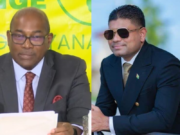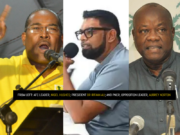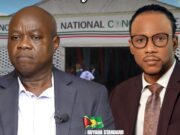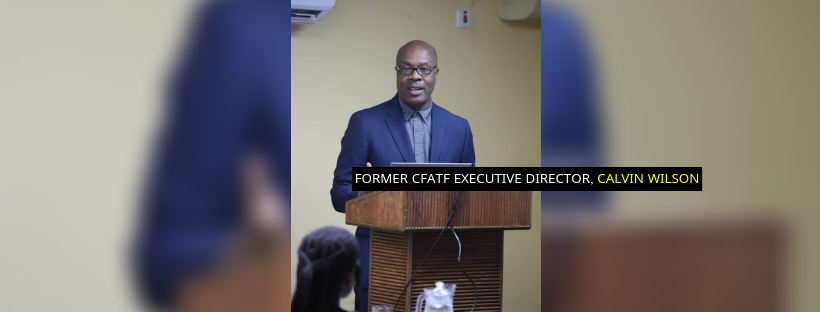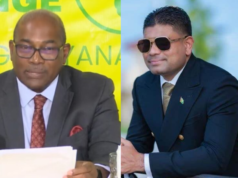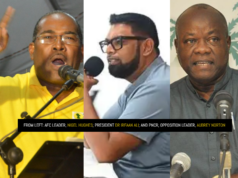By Abena Rockcliffe-Campbell
Could the Special Organized Crime Unit (SOCU) be the weakest link in Guyana’s chain-like anti-money laundering framework that potentially causes the nation to again find itself being actively reviewed by the Financial Action Task Force (FATF)?
SOCU’s role in Guyana’s Anti-Money Laundering and Countering the Financing of Terrorism (AML/CFT) framework is by no means insignificant.
Within the AML/CFT structure, commercial banks are named reporting agencies. These banks are mandated to make reports of suspicious transactions to their regulator, the Bank of Guyana. In turn, the Central Bank is required to prepare and submit reports to the Financial Intelligence Unit (FIU). FIU does its assessments and submits reports to SOCU for further investigations, if needed, and for SOCU to pursue prosecutions.
SOCU is essentially the last link in a comprehensive chain-like framework to counter money laundering and the financing of terrorism. But it consistently fails to do its part. Just last month, the Guyana Standard reported that the FIU sent 21 cases of suspicious transactions to SOCU but not a single prosecution was had.
Coupled with its inability to secure a single prosecution, SOCU has been plagued by scandals and illegal activities. To add salt to the proverbial wounds, SOCU was recently under investigation; the findings were damning and included falsified records and misused funds.
As a result of its shortcomings, the Unit has become the laughingstock of the People’s Progressive Party (PPP). In fact, Opposition Leader, Bharrat Jagdeo, makes it a hobby to taunt SOCU. He often notes that SOCU has been unable to win any case against PPP officials who were deemed highly corrupt, including the party’s presidential candidate, Irfaan Ali.
But, the problems of SOCU go beyond it being referred to as a “joke”; the implications of SOCU’s failure to actively pursue and secure prosecutions for anti-money laundering perpetrators goes beyond politics and domestic affairs. It can result in international sanctions and, in this regard, SOCU’s failure can increase perceptions that Guyana is a haven for money launderers.
Broadly defined, money laundering is essentially the concealment of the origins of illegally obtained wealth. It covers from gold smuggling to drugs and arms trafficking.
Recently, the Guyana Press Association (GPA) facilitated a two-day capacity building workshop. One of the presenters was Former Executive Director of the Caribbean Financial Action Task Force (CFATF), Calvin Wilson.
Guyana Standard asked him about the implications for the country given SOCU’s current disposition. Not wanting to speak specifically about the affairs of Guyana, Wilson spoke about what is likely to be the fate of any country that finds itself in a similar situation.
He said that if an important arm of a country’s anti-money laundering architecture is found deficient or not functioning properly, it means that the country is not meeting the international standards to be effectively implementing the 40 recommendations on international anti-money laundering standards.
Wilson said, “It means that when the country is assessed at some stage in the future, the report by the assessors will say exactly what is being said now [about SOCU’s inability to secure prosecutions], that is if it does not change. The report will identify deficiencies and, based upon the ratings of the report, potentially the country can go back onto FATF review for having the shortcomings.”
The former CFATF Executive Director was keen to note, “When you go into that process, it is extremely difficult to get out, it takes a very long time.”
Wilson further said that if there are no prosecutions by the time Guyana is up for review next year, if deficiencies are found in the other aspects and the architecture is found not in keeping with the international standard, “The country can potentially be placed on to this list.”
Wilson explained that countries are sometimes placed into what is referred to as a “pool.” Wilson said that countries in the “pool” are often those that have met the criteria to be examined by the FATF but “because of the level of the financial sector assets in the particular jurisdictions, they are put into a pool until it is felt that it is time to review them. But they are not completely out of the woods because, at any stage, FATF can take them out of the pool and review their activity.”
Landing on the blacklist, or even being actively reviewed, will have serious implications for the economy. Businesses will feel the squeeze and the nascent oil sector will be hampered as bank to bank transactions will be stymied.
